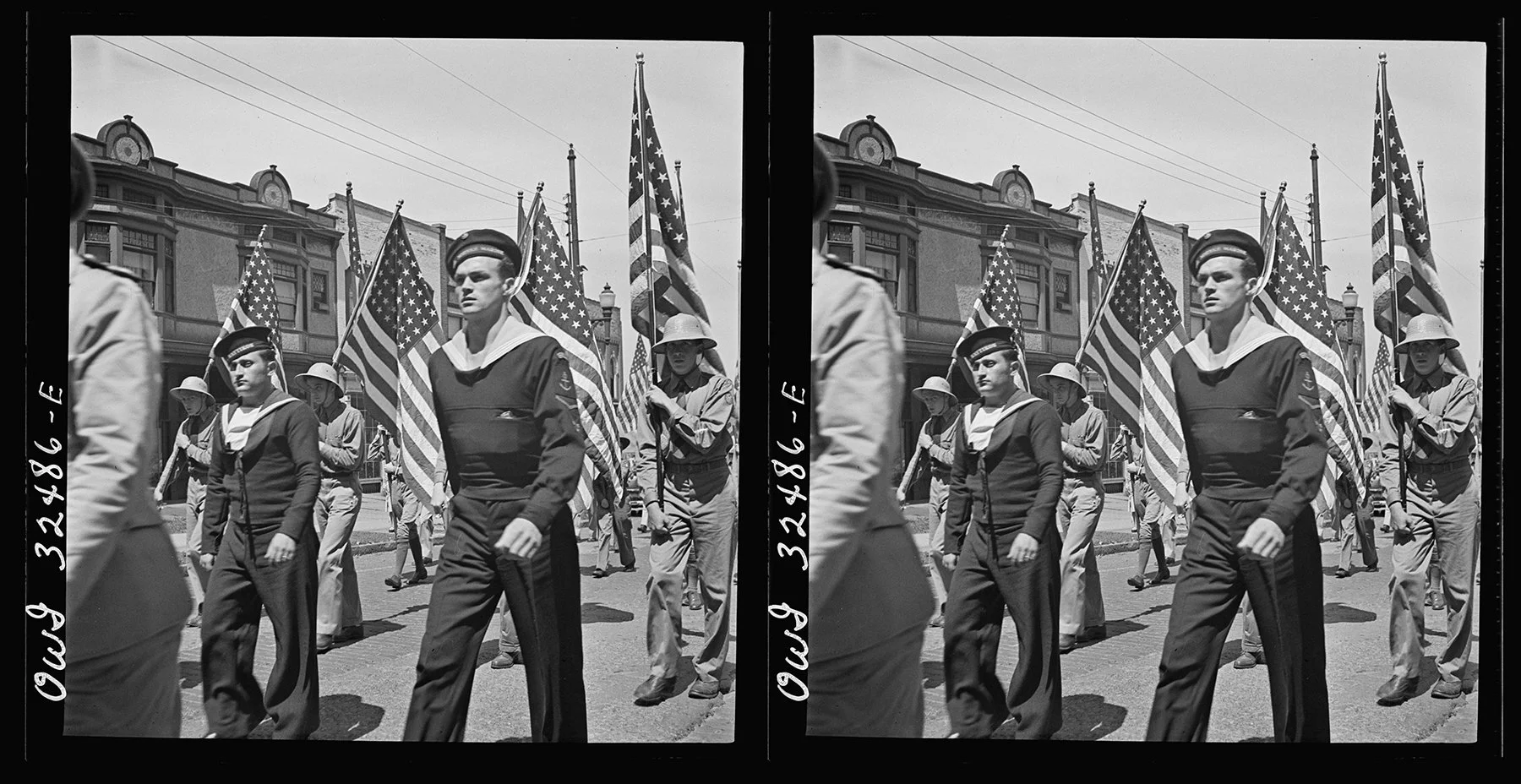Life Story Links: June 14, 2022
“He who digs into the past would know that barely a millionth of a second divides the past from the future..”
—Eugenio Montale
United Nations Heroes marching in the Flag Day parade during United Nations week in Oswego, New York, in June 1943. Photographed by Marjory Collins for the Office of War Information; courtesy of the Library of Congress Prints and Photographs Division Digital Collection.
What we capture
AVOIDABLE REGRETS
Nearly half of Americans in a recent poll regret not recording or documenting conversations with loved ones who have died; and many people (44 percent) wish others would record or document conversations they have to preserve memories.
SO, LET’S START RECORDING!
In light of the above-mentioned poll, I put together some resources to make it easier for anyone to record conversations and gather stories from loved ones—so we can begin to see an upward trend in legacy preservation…and avoid regrets.
Our families, our stories
YOUR STORY, OR THEIRS?
“How do I write about social workers who harmed a child I love? How do I write about her mother? What do I owe them on the page?” Sarah Sentilles wrestles with the notion of writing about others in memoir.
MEMORIES OF THE POGROMS
“Grandma eventually came to learn that the only way I would fall asleep was by listening to the soft sound of her voice as she described in detail her early childhood in Russia.” A childhood interest in stories becomes a lifelong search for legacy—then, a book.
LEARNING TO LIVE WITH GHOSTS
The Korean tradition of jesa, or memorializing ancestors, helped Joseph Han understand that “our loved ones’ memories and histories suffuse our world and continue to shape our lives long after they have departed.”
BEDTIME STORY
“I am speaking to an audience of one, who happens to be the book’s foremost subject, my 74-year-old father, Joe, or Daddy as Northern Irish naming conventions insist he must be addressed.” Séamas O'Reilly on reading his memoir to his father.
WHAT CONTRADICTION?
On the latest episode of Schmaltzy, a podcast that explores the intersection of Jewish identity and food, Hillary Reinsberg shares stories about the distinctly German-Jewish way of doing things at her grandparents’ New York home:
The power of narrative exploration
CONFESSIONAL WRITING, REFINED
“Melissa Febos’s recent essay collection shows us not only how to capture the difficult, intimate details of our lives in writing, but why we should.” Adam Dalva on the necessity of creative confession.
THE STORY WE WRITE FOR OURSELF
“Will you take some chapters from your family’s history and courageously edit and fit them into the vision for your life’s purpose? Will you dare to write completely new chapters based on your true passions and desires?”
NARRATIVE MEDICINE IN PRACTICE
Read an excerpt from The Healing Power of Storytelling: Using Personal Narrative to Navigate Illness, Trauma, and Loss by Annie Brewster with Rachel Zimmerman, and listen to an interview with the author and Here & Now host Robin Young:
SLAVERY’S LEGACY: ORAL HISTORY PROJECT
“This kind of oral history project has never been done before. Many will, for the first time, hear the voices and memories of people whose personal experiences are still inextricably tied to racial slavery, the transatlantic slave trade, and colonialism.”
...and a few more links
New memoir of Chris Blackwell, founder of Island Records, reflects on helping bring the music of Bob Marley, U2 and Grace Jones to the world.
A one-page “Empathy Interview Guide” from Stanford d.School
On the True Stories Well Told blog: “10 Minutes to Death” by Marg Sumner
Short takes










